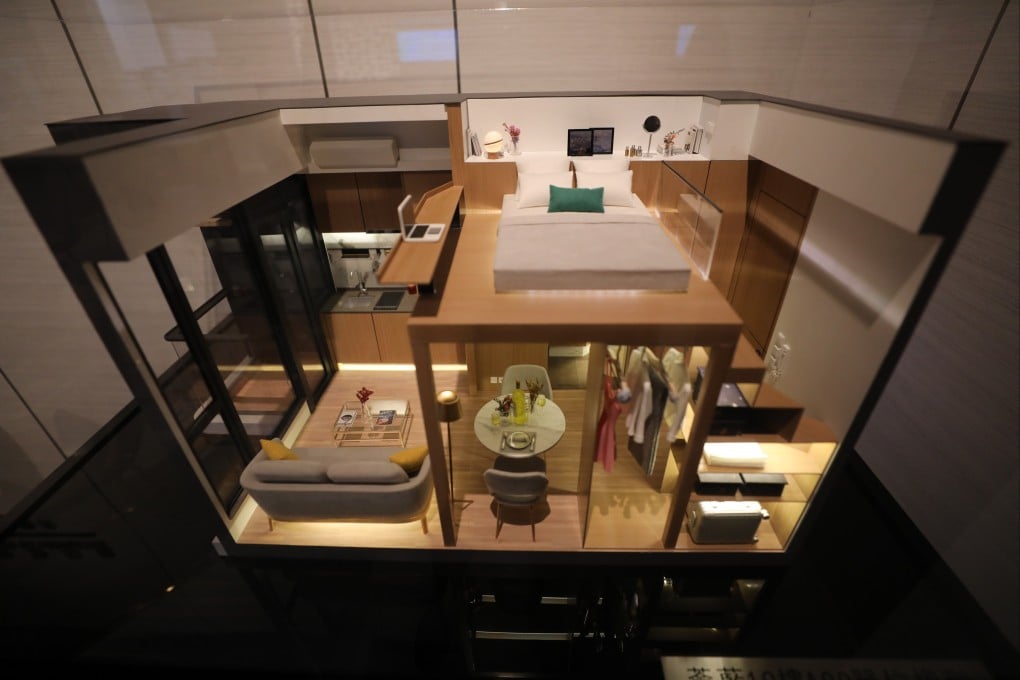Advertisement
Hong Kong’s nano flats: does falling demand point to the end of container-size abodes?
- In 2019, 642 such flats sold for a total of HK$2.3 billion, but last year only 307 were sold for a total of about HK$1.5 billion
- Too early to conclude that we have seen the back of nano flats, think tank executive says
Reading Time:4 minutes
Why you can trust SCMP

Divergent responses to recent property launches suggest buyers in Hong Kong have started preferring larger flats, following a relaxation of mortgage rules and as the market remains soft.
Advertisement
The sales of nano flats, or homes measuring 200 square feet (18.6 square metres) or less, have declined of late. In 2019, 642 such flats sold for a total of HK$2.3 billion (US$293 million), according to Dataelements, a data provider that tracks new residential properties in Hong Kong. Last year, only 307 were sold for a total of about HK$1.5 billion.
“The relaxation of mortgages has shifted demand in the mass residential market from first homebuyers to upgraders,” said Norry Lee, a senior director at JLL in Hong Kong. “A weak leasing market has further dampened investment demand for nano flats.”
Known variously as micro-apartments, nano flats or shoebox homes, the smallest of Hong Kong’s notoriously tiny abodes are only slightly bigger than the typical carparking space (130 sq ft), or the standard 20-foot shipping container (160 sq ft). The city with the world’s second-biggest population of billionaires also has the smallest average living space per person, 23 per cent less than Tokyo, 40 per cent smaller than in Singapore, and nearly almost half the size of what residents in neighbouring Shenzhen live in, according to Hong Kong’s government data.
Hong Kong raised the amount of mortgage loans available earlier this year to help more residents get on to the property ladder and to forestall a market slump amid the worst of its Covid-19 outbreaks. Starting in February, the maximum limit for mortgage loans of up to 80 per cent of a property’s value was amended to HK$12 million from HK$10 million previously, in the 2022/23 budget.
Advertisement

Advertisement